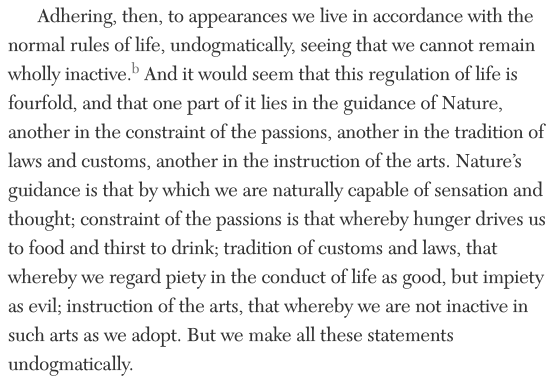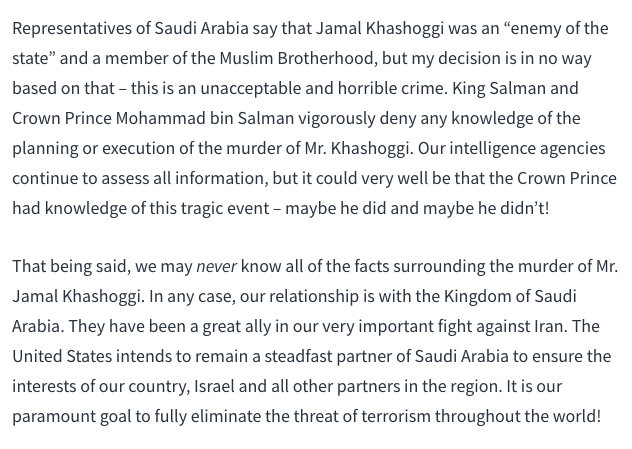One of the central themes in my research is that epistemology is practical in a particular way: skepticism is used to defend the status quo. "Someone says there's a problem, but I, a very rational person, find their case inconclusive, so let's not do anything."
Here's a thread.
Here's a thread.
This is part of the reason why thinking clearly about skepticism — and recognizing the cases in which it is a mistake — is practically important. This can be particularly hard because the stereotype of a careful, rational thinker is someone who is skeptical. This is a mistake.
We read Descartes, who's all, "let's not accept anything until we are absolutely certain of it!" and we think, "what a rational man!" This encodes a bias towards the skeptical that we shouldn't just assume. It's not rational to disbelieve what's before one's eyes! It's just not.
This has practical effects. Think of someone who won't believe (or do anything in response to) a sexual harassment complaint on the grounds that it's a "he said–she said situation". Think how easy it is for them to say that and sound reasonable. This is epistemic propaganda.
The examples are everywhere. "Climate change evidence is uncertain, so let's not do anything about it!" Epistemology focuses a lot on preventing bad beliefs, but not nearly enough on demanding good ones.
There's this background thought motivating some of this, I think, that says, what we really need to make sure is that we don't MESS ANYTHING UP, so we shouldn't DO something until we're sure it's a good idea. This ignores the fact that standing by idly IS a significant action.
It also encodes a deeply conservative value: the idea that things are basically fine as they are. So this kind of skepticism-emphasis tilts the political playing field against efforts at reform.
It's not a coincidence that Sextus Empiricus described the ancient Pyrrhonian skeptics as living by the "laws and customs" in their culture when they suspended judgment on everything.
Compare also Donald Trump's rhetoric in his statement on Saudi Arabia and Jamal Khashoggi. "Yes the murder was terrible, but maybe it ways the Saudis, and maybe it wasn't, who knows, let's keep selling them weapons!" Skepticism supports the status quo. https://www.whitehouse.gov/briefings-statements/statement-president-donald-j-trump-standing-saudi-arabia/
Coming back closer to home in analytic philosophy, a trans philosopher today published a heartbreaking personal essay on her decision to leave academic philosophy because of the transphobia it contains and cultivates https://medium.com/@transphilosopher33/i-am-leaving-academic-philosophy-because-of-its-transphobia-problem-bc618aa55712
Her essay lays out a serious problem in academic philosophy that some of us have been noticing and talking about for a while now. It is stark evidence that the problem isn't merely intellectual: it is chasing diversity out of our profession.
It's in the best interest of the status quo, of course, is to ignore it. One way to do that is to raise skeptical worries. One reactionary blogger has already laid out that critique, suggesting that the whole thing is a fabricated attack.
Epistemologists need to do a better job explaining when & why suspending judgment is an epistemological error. This oppressive skeptical move gets more traction than it should. A "careful" thinker isn't always a skeptical one. Believing what is evident is part of being rational.

 Read on Twitter
Read on Twitter




